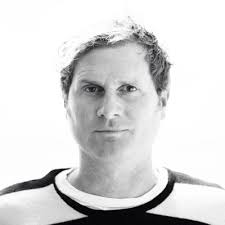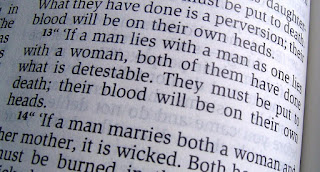Rob Bell
I just read an excerpt from Rob Bell's soon to be published book, "What is the Bible?". It looks to be a really interesting, challenging, thought-provoking, inspiring book. The excerpt, which was posted on his Facebook page has created in me a bit of an inner argument.
I'm personally really excited to get this book, and more excited about the thought of perhaps engaging a group of people who have abandoned the Bible completely to take a fresh look at it through the lenses Rob appears ready to help people use.
But, I thought twice, three times, even four about even "LIKING" the Facebook post. I know what will happen. Many people will question me, "Do you really read Rob Bell? Don't you know he is a heretic?" A few will give a thumbs up to me. Most will say "Rob who?"
But it's time to come out of the closet. It's time to stop worrying about pleasing and appeasing people when it comes to what I believe about the Bible and how exactly we are meant to interact with and use it today. It's time to follow the inner challenge I've been sensing to speak out about the problems that I and many Jesus-following people have with the dominant views about the Bible in the world of evangelical Christianity. It's time to say publicly, as I've been saying to a select few privately: One can be a Christian and not ascribe to the doctrine of Biblical inerrancy (namely, that the Bible is without error of any sort since it is literally God's words written down by human authors).
It is my conviction that MANY people, especially people younger than me, are convinced that there are only two options when it comes to the Bible.
1. Believe it is literally God's words. That it is all literally true, with no errors.
2. Believe it is just a bunch of myths created by humans.
When given these options, most younger people default to option number two because they believe that evolution is true (or at least that the earth is billions of years old), and they can't accept the conservative Christian viewpoint on homosexuality. (Yes I'm oversimplifying.)
What Rob Bell will do in his upcoming book will, I believe, offer hope to these people that there are other options: options that encourage robust thinking, devout activity, and active worship of the God of the Universe.
So if you've struggled with "what am I supposed to do with the Bible?", if you've felt ostracized by other Christians when you have given voice to your doubts and questions, if you really want to know more about a way to follow Jesus that won't force you to ignore modern science, I'd really like to hear from you.
I'm personally really excited to get this book, and more excited about the thought of perhaps engaging a group of people who have abandoned the Bible completely to take a fresh look at it through the lenses Rob appears ready to help people use.
But, I thought twice, three times, even four about even "LIKING" the Facebook post. I know what will happen. Many people will question me, "Do you really read Rob Bell? Don't you know he is a heretic?" A few will give a thumbs up to me. Most will say "Rob who?"
But it's time to come out of the closet. It's time to stop worrying about pleasing and appeasing people when it comes to what I believe about the Bible and how exactly we are meant to interact with and use it today. It's time to follow the inner challenge I've been sensing to speak out about the problems that I and many Jesus-following people have with the dominant views about the Bible in the world of evangelical Christianity. It's time to say publicly, as I've been saying to a select few privately: One can be a Christian and not ascribe to the doctrine of Biblical inerrancy (namely, that the Bible is without error of any sort since it is literally God's words written down by human authors).
It is my conviction that MANY people, especially people younger than me, are convinced that there are only two options when it comes to the Bible.
1. Believe it is literally God's words. That it is all literally true, with no errors.
2. Believe it is just a bunch of myths created by humans.
When given these options, most younger people default to option number two because they believe that evolution is true (or at least that the earth is billions of years old), and they can't accept the conservative Christian viewpoint on homosexuality. (Yes I'm oversimplifying.)
What Rob Bell will do in his upcoming book will, I believe, offer hope to these people that there are other options: options that encourage robust thinking, devout activity, and active worship of the God of the Universe.
So if you've struggled with "what am I supposed to do with the Bible?", if you've felt ostracized by other Christians when you have given voice to your doubts and questions, if you really want to know more about a way to follow Jesus that won't force you to ignore modern science, I'd really like to hear from you.



Comments